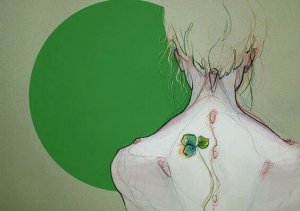Chronic Pain: The Invisible Illness

When we are in pain, it seems simple how to make it go away or at least make it better: we go to the doctor, they tell us what the right treatment is, and the pain disappears.
But it’s not always like that. One of the great challenges in many medical disciplines is chronic pain. What happens when nothing makes the pain go away? How do you control something as messy and exhausting as constant pain?
A person with chronic pain feels like a thousand needles are constantly being stuck into their body. You can see how this situation affects them not only physically, but also emotionally, and psychologically. In their relationships too.
The continuous stress they’re subjected to, together with the problems chronic pain causes, could really shake their relationships, worldview, and entire life.
“There are pains that kill: but there are more cruel ones, those that leave us living without ever allowing us to enjoy life.”
– Antoine L. Apollinaire Fée –
It won’t be hard just for the person with chronic pain. Close relationships will also experience some difficulty, especially when there is ignorance, a lack of understanding or exhaustion.
Since they’ve also felt different types of pain throughout their lives, they believe they have the ability to empathize.
However, as it is so subjective and dependent on their own feelings, it’s very hard to get into the skin of the person who is suffering.
What can psychology do for chronic pain?
Pain is a warning from our body that tells us something is not right. But, what happens when — after following medical recommendations — the pain persists?
Life can become extremely draining. Day-to-day activities will also turn into suffering themselves, and it’s all too easy to see the future with only despair.

This feeling of being at the mercy of pain like a leaf in the wind is highly damaging to one’s self-esteem.
It’s true that the degree of disability chronic pain causes varies in each person’s situation. However, regardless of the degree of autonomy and functionality each person has, they will often feel limited and frustrated.
In general terms, experts call it chronic pain when it lasts longer than six months and medical or surgical treatments don’t help.
And although there may medication to relieve symptoms, psychotherapy can also be of great help in these cases.
Acceptance and empowerment using psychology can reinforce one’s feeling of control over their own life.
“Joy and pain are not like oil and water, rather they coexist.”
– José Saramago –
Dealing with pain
There are several techniques to deal with chronic pain. Next, we will focus on those in the “Pain Manual” (Moix and Kovacs, 2009).
One of the main formulas for growing in adversity is to know how the thing that is affecting us works. When we understand the problem, we can create better strategies, and the stress from uncertainty can go down.
Thus, we become experts in focus. Learning how to direct our attention is elementary to realizing how much power we have over pain.
In this way, training our attention in order to direct it towards relaxing stimuli will be of great help, instead of focusing on that debilitating pain.
“The man whom pain did not educate will always be a child.”
– Nicolás Tommaseo –
Here’s another thing to keep in mind. The unease generated by feeling discouraged just feeds the disease. Fear, stress, and sleep problems only increase pain.
Knowing this, we can work in the opposite direction. That is, focusing our emotions, thoughts and behaviors towards a little bit of health instead of helping increase our pain. However minimal, it will help things go in our favor.

Let’s do it
Once we understand that we can approach the problem actively, we can start working on it. Some great action ideas include:
- Relaxation and breathing: they’re essential to relieve muscular tension. Relaxing not only consists of lying down and physically disconnecting at the muscular level, but also other methods like going to the movies, eating at a restaurant, listening to music, talking on the phone to a friend, walking … which also help us to disconnect.
- Emotions: they are another important part of the process. Knowing them, understanding how they affect the pain and working on distancing techniques can be very helpful.
- Communicating in a healthy way: it’s logical that in a situation of chronic pain, complaining turns into a way of life. Working on the way we express ourselves and communicate the same message but in a different way will help improve our relationships.
- Recover old and healthy habits: it’s normal to stop doing activities that we used to enjoy, including everyday things, since they’ve gotten harder. But recovering old dynamics, even little pleasures, will help us build a better life.
- Putting together a plan with our therapist: knowing what our thought filters and cognitive distortions are that are preventing us from changing our thought patterns is fundamental.
“Pain and suffering are a kind of currency passed from hand to hand until they reach someone who receives them but does not pass them on.”
– Simone Weil –
As you can see, chronic pain doesn’t just affect our body but also our thoughts, relationships and emotions. It may be invisible, but it carries a lot of weight.
This text is provided for informational purposes only and does not replace consultation with a professional. If in doubt, consult your specialist.








